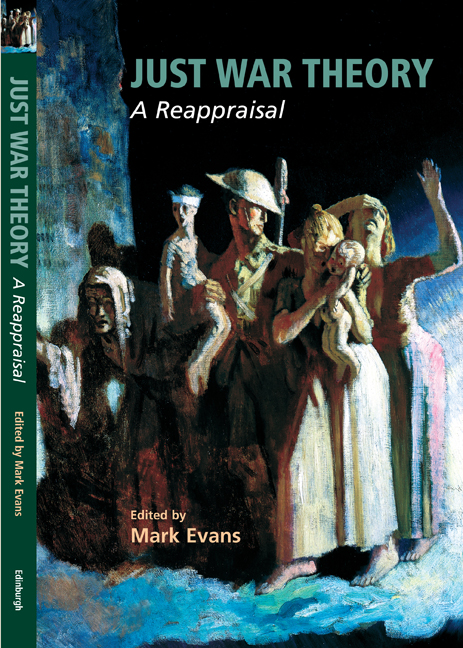Book contents
- Frontmatter
- Contents
- Notes on the Contributors
- Preface and Acknowledgements
- Introduction Moral Theory and the Idea of a Just War
- JUST CAUSE
- 1 The Justice of Preemption and Preventive War Doctrines
- 2 Punitive Intervention: Enforcing Justice or Generating Conflict?
- 3 In Humanity’s Name: Democracy and the Right to Wage War
- JUSTICE IN THE CONDUCT OF WAR
- 4 The Concept of Proportionality: Old Questions and New Ambiguities
- 5 Just War? Just Children?
- 6 Is There a Supreme Emergency Exemption?
- JUSTICE AND THE END OF WAR
- 7 Security Beyond the State: Cosmopolitanism, Peace and the Role of Just War Theory
- 8 Forgiveness and Reconciliation in Jus Post Bellum
- CONCLUSION
- In Defence of Just War Theory
- Bibliography
- Index
7 - Security Beyond the State: Cosmopolitanism, Peace and the Role of Just War Theory
Published online by Cambridge University Press: 03 October 2020
- Frontmatter
- Contents
- Notes on the Contributors
- Preface and Acknowledgements
- Introduction Moral Theory and the Idea of a Just War
- JUST CAUSE
- 1 The Justice of Preemption and Preventive War Doctrines
- 2 Punitive Intervention: Enforcing Justice or Generating Conflict?
- 3 In Humanity’s Name: Democracy and the Right to Wage War
- JUSTICE IN THE CONDUCT OF WAR
- 4 The Concept of Proportionality: Old Questions and New Ambiguities
- 5 Just War? Just Children?
- 6 Is There a Supreme Emergency Exemption?
- JUSTICE AND THE END OF WAR
- 7 Security Beyond the State: Cosmopolitanism, Peace and the Role of Just War Theory
- 8 Forgiveness and Reconciliation in Jus Post Bellum
- CONCLUSION
- In Defence of Just War Theory
- Bibliography
- Index
Summary
The lessons learnt from international politics in the post-Cold War era and the nature of global conflict today compel us to accept an important fact: it is impossible to protect and enhance human freedom and wellbeing exclusively through the traditional paradigm of state security. The security of the individual human being must also be taken into consideration. Political theory and practice must come to accept this global reality, since all too often the best laid plans for achieving state security have come at the cost of an increase in human suffering, fear and deprivation. What is required is a new global outlook: a cosmopolitan approach that recognises the highly interdependent nature of human life across political and territorial boundaries and the growing irrelevance of the traditional conception of state sovereignty as an end in itself. This new global outlook may be best represented by the human security paradigm. For cosmopolitans as well as for human security advocates, the traditional realist claims to sovereignty and nonintervention on the part of states are being supplanted in international relations by a norm of humanitarian assistance driven by the human rights and security interests of individuals. According to cosmopolitanism, state sovereignty in itself provides no reason not to intervene when necessary, for example, to prevent humanitarian disasters and gross human rights violations. Thus cosmopolitans have advanced various arguments intended to contest realism and its apparent insensitivity to the causes and effects of humanitarian injustices in which states are often complicit.
This chapter first reviews the emergence of the concept of human security and its meaning and implications for challenging the dominant realist paradigm of state security and that paradigm's rationale for the state's monopoly on violence. The chapter goes on to support the idea of a human right to peace, this right serving as a core component of an adequate formulation of human security. Finally, it explores how a robust formulation of just war theory can provide us with reasonable criteria for thinking about how we ought to respond to some of the most severe threats to human security, while doing justice to the human right to peace.
- Type
- Chapter
- Information
- Just War TheoryA Reappraisal, pp. 157 - 176Publisher: Edinburgh University PressPrint publication year: 2020



